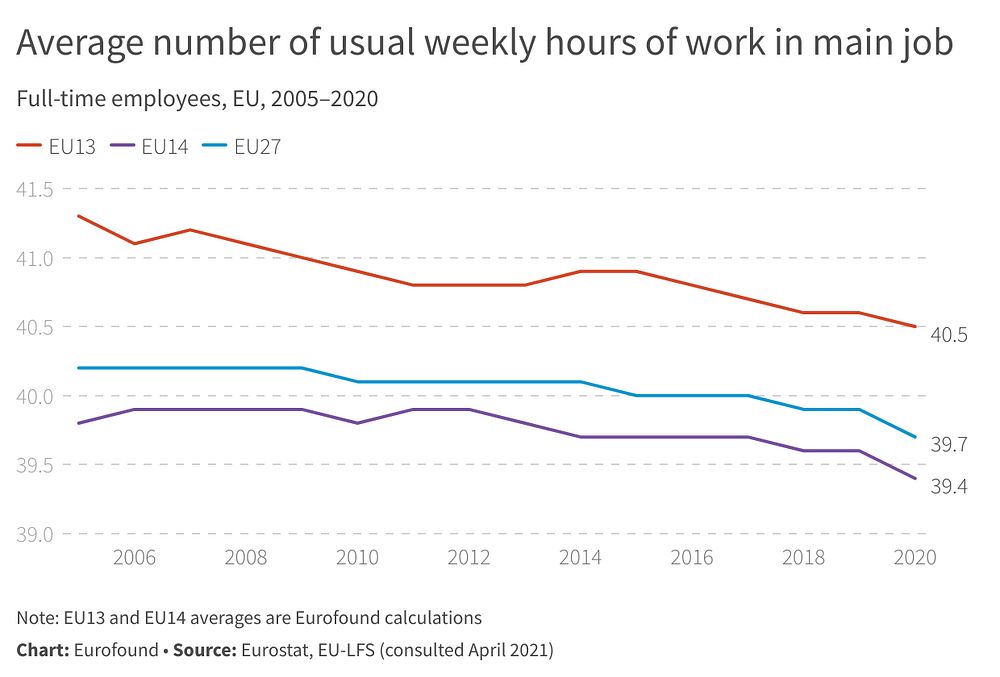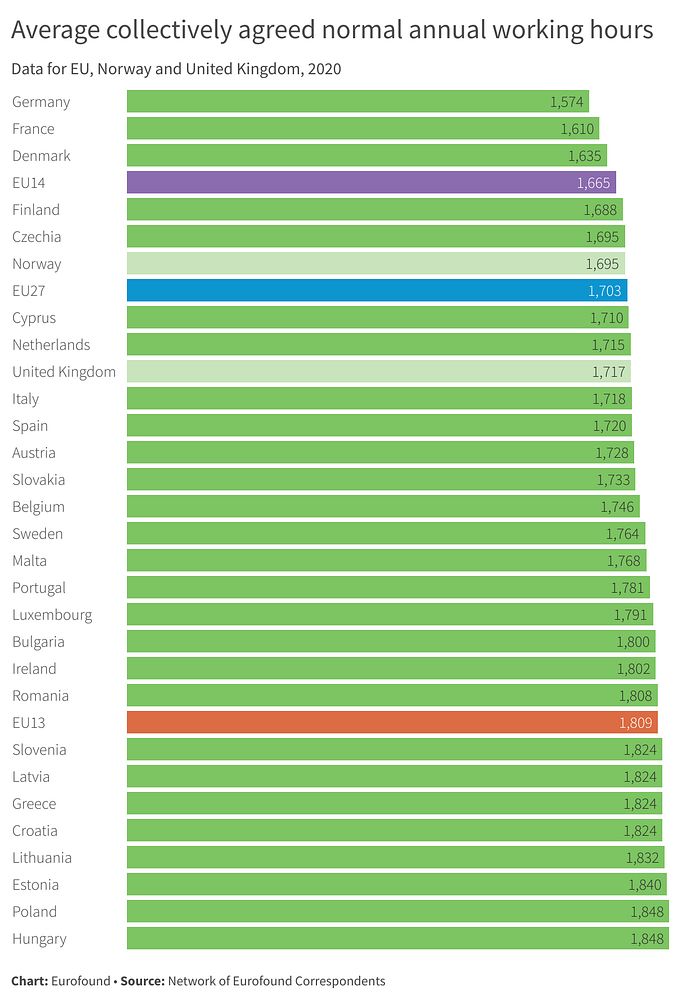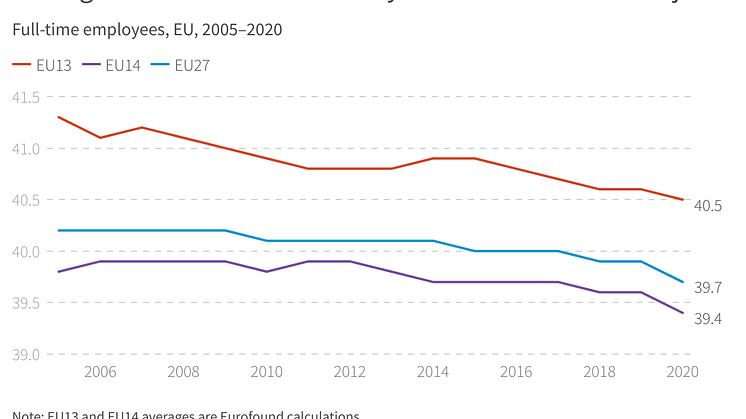
News -
COVID-19 triggered important changes in working time, but overall trends appear the same
The COVID-19 pandemic led to important changes in working time regulation across the EU with the emergence of greater flexibility in short-time working schemes; the adaptation of working time regimes to telework; and temporary derogations from working time regulations mostly to ensure the continuous functioning of essential services. However, despite economic restrictions significantly reducing working time in a number of sectors, overall trends do not fully reflect this due to the polarisation of working time in different sectors; with some workers left with little to do due to restrictions, and others facing burnout due to long working hours and arduous demands.
Eurofound’s new report Working time in 2019-2020 documents the most relevant changes in working time regulation after the onset of the COVID-19 pandemic, including short-time working schemes, and approaches to telework for those able to work from home. It also details policies and regulations to ensure the safe ongoing provision of essential services by workers continuing to work on site, including temporary regulations implemented under state-of-emergency provisions that led to the relaxation or derogation of labour rights in relation to working hours, rest and leave provisions. Extended working hours, limitations on rest periods and provisions to delay annual leave were applied in the health, care, transport and logistics sectors across the Union, including in Finland, France, Italy, Luxembourg, Poland and Portugal.
The report shows that in 2020 the average collectively agreed working week in the EU stood at 37.8 hours – longest in Malta, Greece, and Croatia (40 hours), and lowest in France and Germany (35.6 hours). On a sectoral level, the collectively agreed normal working week was shortest in public administration (38 hours) and longest in transport (39.2 hours).
Despite the fundamental changes that COVID-19 brought to the labour market, and associated pressures on individual sectors, the data for overall usual weekly working hours of full-time employees continued to decrease at a broadly consistent pace in most Member States, ranging from a reduction in 0.1 Slovenia to 0.3 hours in Austria, Ireland, Portugal and Spain. In Denmark, Estonia, France, Latvia, Lithuania and the Netherlands, usual weekly hours in 2020 remained the same as in 2019. Data also show that the difference between Member States that joined prior to 2004 (the EU14) and those that joined in or after 2004 (the EU13) remained stable at around 1 hour less, a constant since 2011.

Click here for background data
Collectively agreed annual working hours also reflect the continued differences between Member States. While full-time workers in the EU27, as per collectively agreed normal working hours, should have worked 1,703 hours on average in 2020, this was lower at 1,665 hours in the EU14 and higher in the EU13 at 1,809 hours. Hungary and Poland, where collective bargaining does not have a relevant role in regulating working hours, had the longest annual working hours, the equivalent of nearly seven weeks more than their counterparts in Germany, which had the shortest collectively agreed annual working hours.

Click here for background data
The report also shows the dividend of collective agreements for workers in terms of paid holidays. While the minimum paid annual leave entitlement in the EU is 20 days, some Member States have increased this minimum entitlement through legislation or by collective agreement. If entitlements established through collective bargaining are factored in, the average annual paid leave stood at 24.5 days in the EU27. This is higher in the EU14 (25.6 days) than in the EU13 (21.4 days).
Speaking on the publishing of the report, Eurofound Executive Director Ivailo Kalfin emphasised that the analysis of changes in the labour market and working time regulation in the research is an important contextualisation of broader trend data: ‘This report offers vital data with regards to working time trends and continued disparities in collectively agreed working time between Member States, but equally important is the analysis that complements this trend data, which considers the significant labour market disruption and changes in working conditions that we have seen in Europe during this period.’
Download the report:
Further information:
- Topic page: Working time







